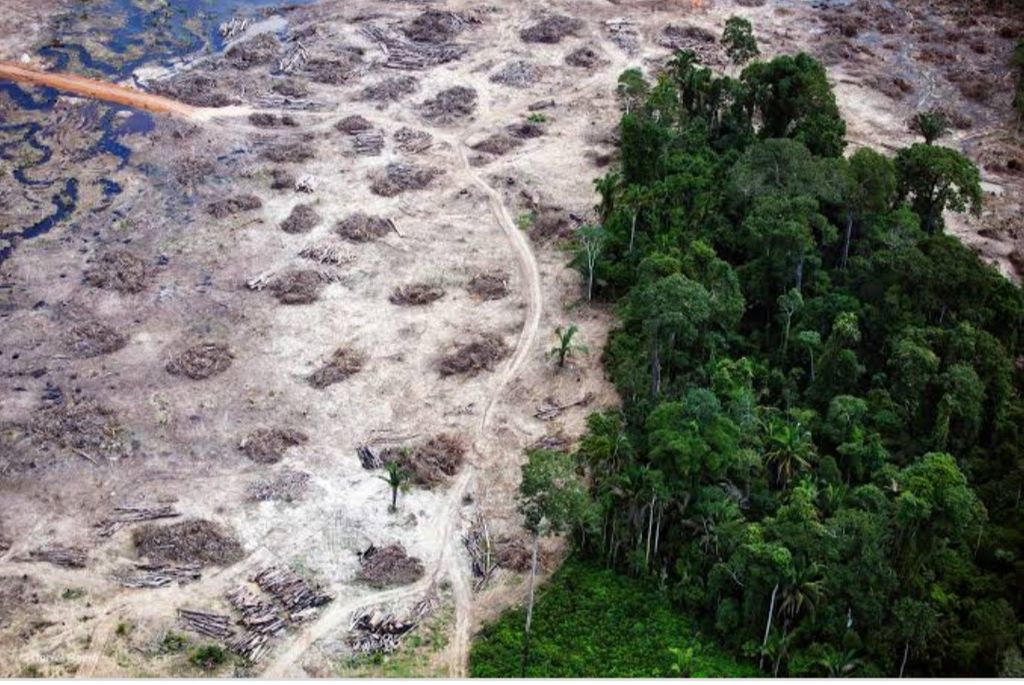Destruction Of Nature Is A Big Threat
Jun 29, 2019 • 9 views

We are crushing nature at an extraordinary rate, undermining the survival of a million animal types – and our very own future, as well. Be that as it may, it's not very late to spare them and us, says a noteworthy new report.
"The proof is incontestable. Our decimation of biodiversity and environment administrations has achieved levels that undermine our prosperity in any event as much as human-prompted environmental change."
With these words seat Robert Watson propelled a gathering in Paris to concur the last content of a noteworthy UN report on the condition of nature around the globe – the greatest and most careful evaluation to date, set up together by 150 researchers from 50 nations.
The report, discharged today, is for the most part dreary perusing. We people have as of now altogether changed seventy five percent of all land and 66% of the seas. In excess of 33% of land and seventy five percent of freshwater assets are given to yields or domesticated animals.
Around 700 vertebrates have become terminated in the previous couple of hundreds of years. 40% of creatures of land and water and 33% of coral species, sharks and marine well evolved creatures look set to pursue.
Less space for natural life
Avoiding this is imperative to spare ourselves, the report says. "Biological systems, species, wild populaces, neighborhood assortments and types of tamed plants and creatures are contracting, breaking down or evaporating," says one of the report's creators, Josef Settele. "This misfortune is an immediate consequence of human action and comprises an immediate risk to human prosperity in all districts of the world."
The fundamental reason is basic. Our growing ranches and urban areas are leaving less space for untamed life. The other real causes are the immediate misuse of natural life, for example, chasing, environmental change, contamination and the spread of intrusive species. Environmental change is set to turn out to be always ruinous.
Is life on Earth truly in danger? Reality about the annihilation emergency
Be that as it may, we can even now turn things around, the report says. "Nature can be rationed, reestablished and utilized reasonably while at the same time meeting other worldwide societal objectives through earnest and coordinated endeavors encouraging transformative change," it states.
It additionally says that where land is possessed or overseen by indigenous people groups and nearby networks, there has been less devastation and once in a while none by any means.
The point of the report, by the Intergovernmental Science-Policy Platform on Biodiversity and Ecosystem Services (IPBES), is to give a definitive logical premise to universal activity. The expectation is that it will prompt a similar weight for activity as the most recent logical report by the Intergovernmental Panel on Climate Change (IPCC), on restricting warming to 1.5°C.
"Great information is significant for good administration," says Watson, who led the IPCC from 1997 to 2002. "I'm idealistic that this will have any kind of effect."
Bioenergy danger
However, the test is massive. All nations aside from the US have endorsed the 1992 UN Convention of Biodiversity and should moderate biodiversity and advancing its supportable use.
In spite of this, more than 80 percent of the concurred global focuses for 2020 won't be met, says the report. Indeed, starting at 2016, a large portion of the signatory nations hadn't yet drawn up plans on the most proficient method to meet the objectives.
The issue isn't only our attention on monetary development paying little mind to the effect on the regular world. Current designs for diminishing carbon dioxide outflows to net-zero to constrain environmental change depend vigorously on bioenergy, which requires a great deal of land. This will quicken species misfortune just as compromising nourishment and water security, says the report.
Could we truly reestablish desolated nature to an unblemished state?
Indeed, the bioenergy push is now causing damage. For example, rainforests are being chopped down in Indonesia and Malaysia to develop palm oil to make biodiesel for vehicles in Europe.
Changing our civilisation to cause it increasingly supportable will to require progressively associated reasoning, the report says. "There's an exceptionally divided methodology," says Watson. "We must consider every one of these things in a substantially more all encompassing way."
For example, there are methods for handling environmental change that will help biodiversity as well, for example, convincing individuals to eat less meat and planting more trees. Be that as it may, the unseen details are the main problem – fake manors would profit untamed life far not exactly reestablishing common backwoods.
A portion of the arrangements set out in the report may not be welcome to all. Specifically, it successfully calls for rich individuals to expend less, recommending that changing the propensities for the prosperous might be fundamental to supportable advancement around the world.
